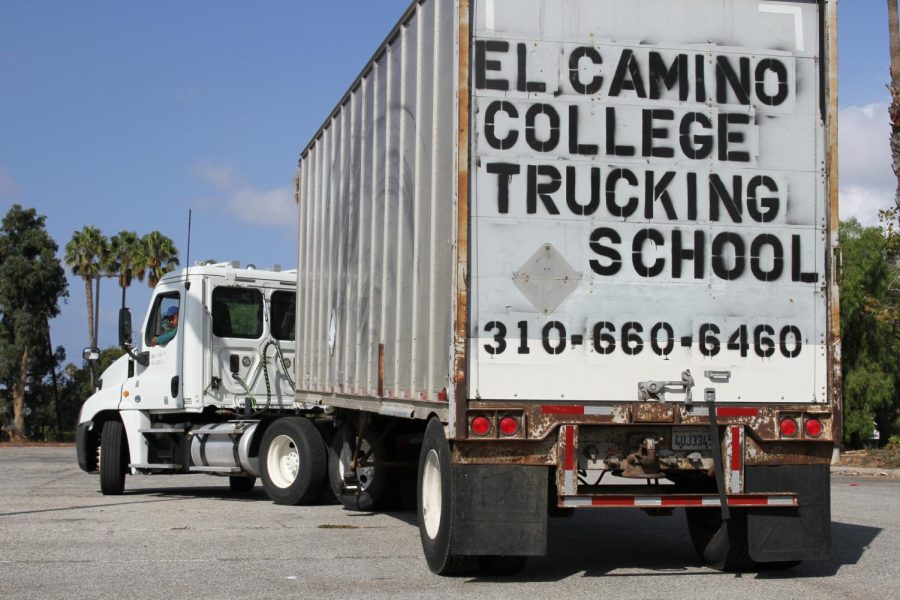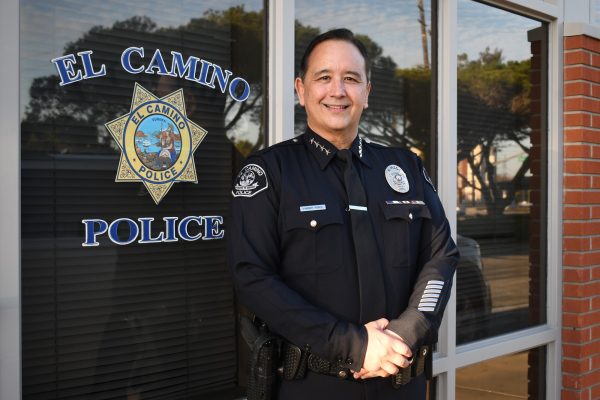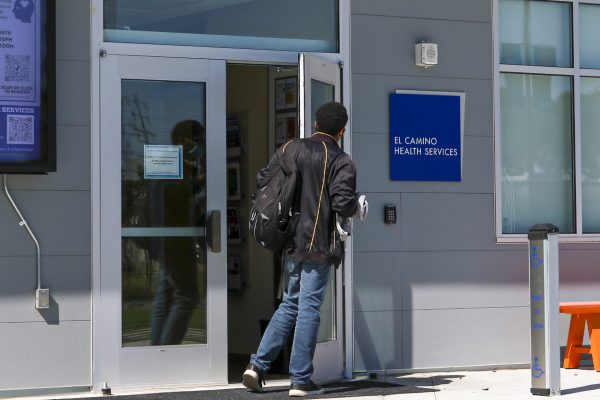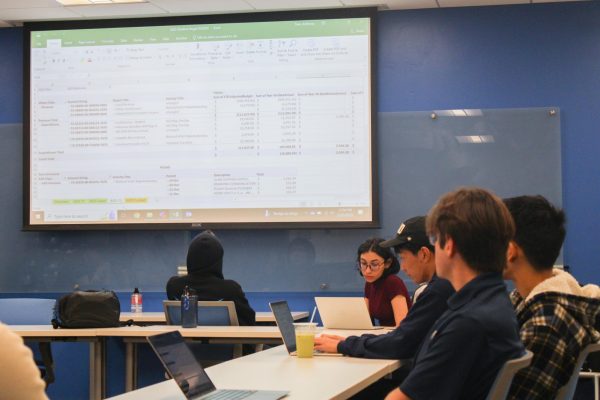Truck Driving course allows students to ‘switch gears’ in their career path
In light traffic on a Sunday morning the El Camino College stadium parking lot sits empty and through lonely, scattered cars, a small white trailer-less truck makes its way to the end of parking lot L.
Emmanuel Navarro, El Camino’s Truck Driver trainer, parks the truck in front of two small trailers. One of the trailers reads ‘El Camino College Trucking School’ in large letters.
Navarro opens one of the trailers and takes out orange traffic cones, two tables, chairs and a blue tent.
He sets up five obstacle courses and two tables, placing five chairs around the table.
He’s ready to teach the morning class.
The supply chain slowed at the pandemic’s peak, and the demand for truck drivers rose. Earlier this year, El Camino started a new job training program aimed at teaching and helping students to earn their class A commercial driver’s licenses.
That is how the El Camino Truck Driving training program was born.
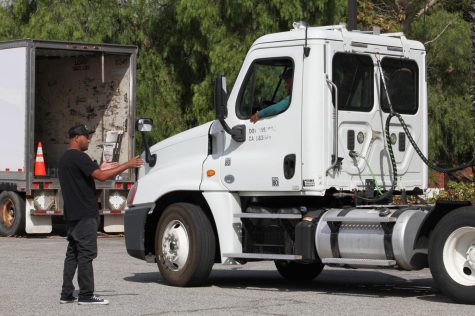
“The wages went up to $29-36 dollars an hour on average,” Navarro said. “With the ports, it is a guaranteed job.”
Navarro said he likes to teach students the ins and outs of truck driving, which is his way of giving back to the community. Before teaching at El Camino, he taught at Empire Trucking in Ontario.
“I want everyone to pass,” Navarro said, “I don’t want anyone to fail.”
Director of Community Education Betty L. Sedor recognized a need for this training in the community, primarily due to the ports around the Bay Area.
Sedor looked online at The U.S. Bureau of Labor Statistics and realized that truck driving is among the highest in-demand occupations nationwide.
“When I kind of discover that there is a need for something, I keep a list in the back of my mind or just on my computer for potential jobs,” Sedor said. “Then I start looking for a good partner, a good trainer that could provide this training.”
Sedor partnered with Del-Aire, a trucking company that transports supplies throughout California. Del-Aire provided instructors and allowed El Camino to use its equipment for teaching.
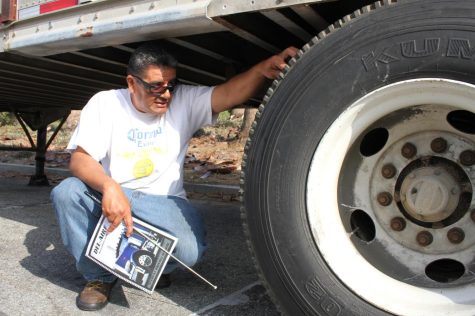
“The demand is so strong that we actually have more students than we do classes,” Sedor said.
There are two classes, with one group meeting on Wednesdays and Thursdays and the other on Saturdays and Sundays. Both classes are extended to finish in November, giving the students more time to learn, practice and achieve the minimum requirement students need to be behind the wheel.
The Federal Motor Carrier Safety Administration has a specific curriculum that students need to follow. At the same time, the California Department of Motor Vehicles requires students to practice for 170 hours to be behind the wheel.
Juan Ceja, a 52-year-old carpenter, said he wants to start working after getting his license. When he learned about truck drivers’ wages, he googled truck driving classes and found that El Camino offers reasonably priced courses.
“I want to learn,” Ceja said. “I want to get the knowledge,”
Ceja said he is a visual learner. While other students are driving, he watches them and studies the obstacle course before he gets behind the wheel.
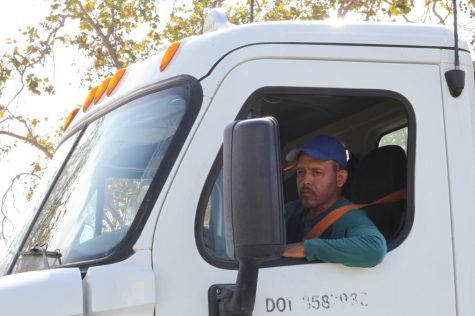
After this group of students gets their requirements for the job commercial driver’s license, or CDL, the program will be paused to “revamp” the course and make some improvements.
Sedor said it would be separated into three parts, allowing students to make payments since FASFA does not cover the course.
“Another reason why I want to divide it into three parts is I want to make it easier,” Sedor said. “A little easier to digest pain, each part of it.”
Sedor partnered with J.J. Keller, a company that strives to teach people how to work safely in job sites and environments. Students will have the opportunity to take a “mock knowledge test” through a textbook that the company provides.
“The reason why some people want to become a truck driver is because some of them want to supplement their existing income,” Sedor said. “They’re not making enough money at their regular jobs.”
People curious about truck driving training can contact the program by calling 310-660-6460 or send an email to commed@elcamino.edu
Editors Note: Friday, Oct. 7. 8:04 p.m. – The truck driving training school phone number was corrected for accuracy and quote in paragraph 13 was adjusted for accuracy.


